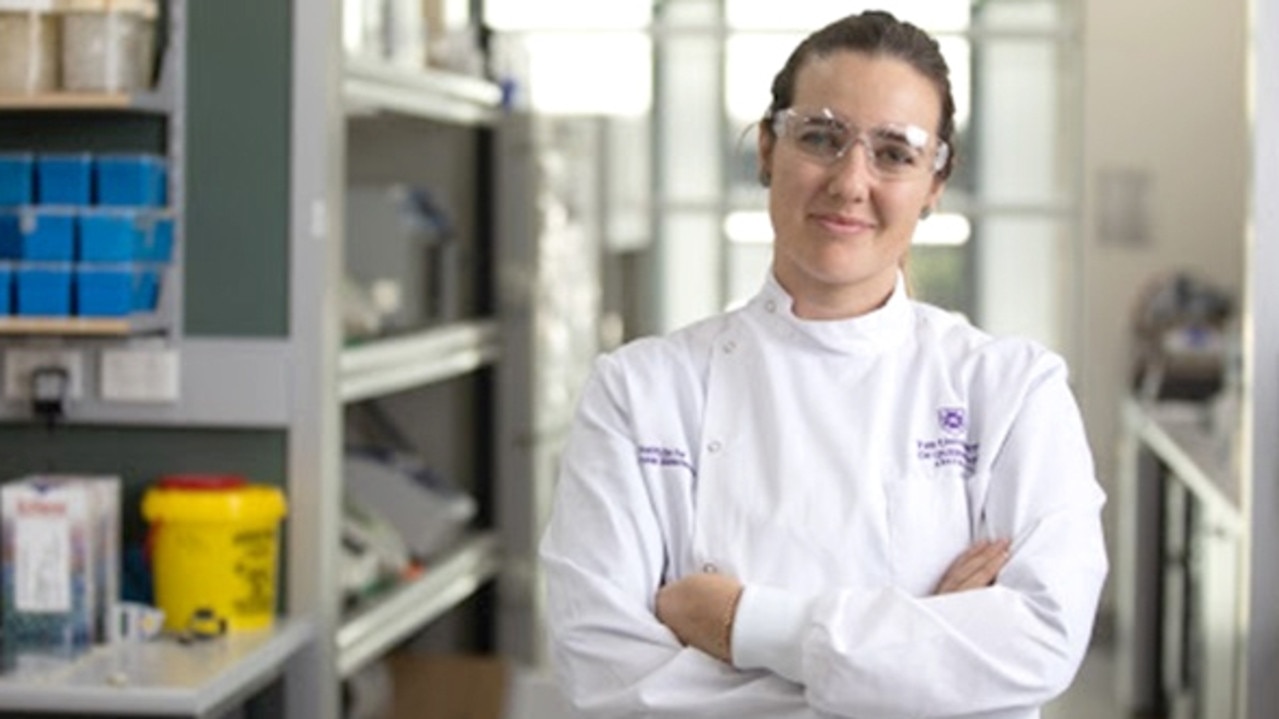Queensland researchers working to determine why COVID-19 patients get severely ill and others escape with a sniffle
Queensland researchers are working to unravel the mysteries of COVID-19 to uncover why some patients end up in intensive care, or worse, while others barely have a sniffle.
Queensland researchers hope to unravel the mysteries of why some people infected with the COVID-19 virus develop severe disease and others escape with no symptoms at all.
Their study will probe whether a person’s genetics play a role and will analyse antibodies in the blood of recovered patients searching for answers to one of the biggest puzzles of the coronavirus pandemic.
The University of Queensland scientists also hope to shine a light on why some people develop long-term effects after being diagnosed with COVID-19, including shortness of breath, debilitating fatigue, headaches and distortions in taste and smell.
QLD BEGINS NEEDLE-FREE COVID-19 VACCINE TRIAL
UQ geneticist Naomi Wray, who works across the Institute for Molecular Bioscience and the Queensland Brain Institute, said understanding more about SARS-CoV-2, the virus that causes COVID-19, could result in better treatments.
“We know that our genetics impacts our risk to disease and also the way we respond to infection,” Professor Wray said.
“If you can identify what it is in DNA that is innately protective for people, that helps us understand the disease better and can then give more insights for the treatments.
“We often hear about the genetics of the virus, but our study will consider the genetics of the human host.”
Professor Wray’s own daughter, Ellen Visscher, 24, has already signed up for the study after being diagnosed with COVID-19 a year ago following a work trip to Europe and the UK.
Australians who have tested positive to SARS-CoV-2, whether they have been asymptomatic or experienced severe symptoms, are wanted for the research.
“We need to get that variation,” Professor Wray said. “We want to get people across that broad spectrum because it’s those differences that will help map the differences in DNA.”
Healthy volunteers who have not had COVID-19 are also being recruited so their blood can be compared with participants who have tested positive to SARS-CoV-2.
They will be asked to fill in a detailed questionnaire and provide a blood sample.

UQ immunologist Larisa Labzin, will study the participants’ antibodies as part of the research.
“By measuring levels of antibodies, we can gain insights into how our bodies are tackling the virus,” Dr Labzin said. “We think that the type of antibodies that you have in your blood influences how sick you get.
“Studying the antibodies and genetic information from COVID-19 patients together will give us great insight into how our genes influence our immune response, which will not only help us in the fight against COVID-19, but also in other infectious and inflammatory diseases.”
To participate in the research: https://imb.uq.edu.au/Covid-OZGenetics



